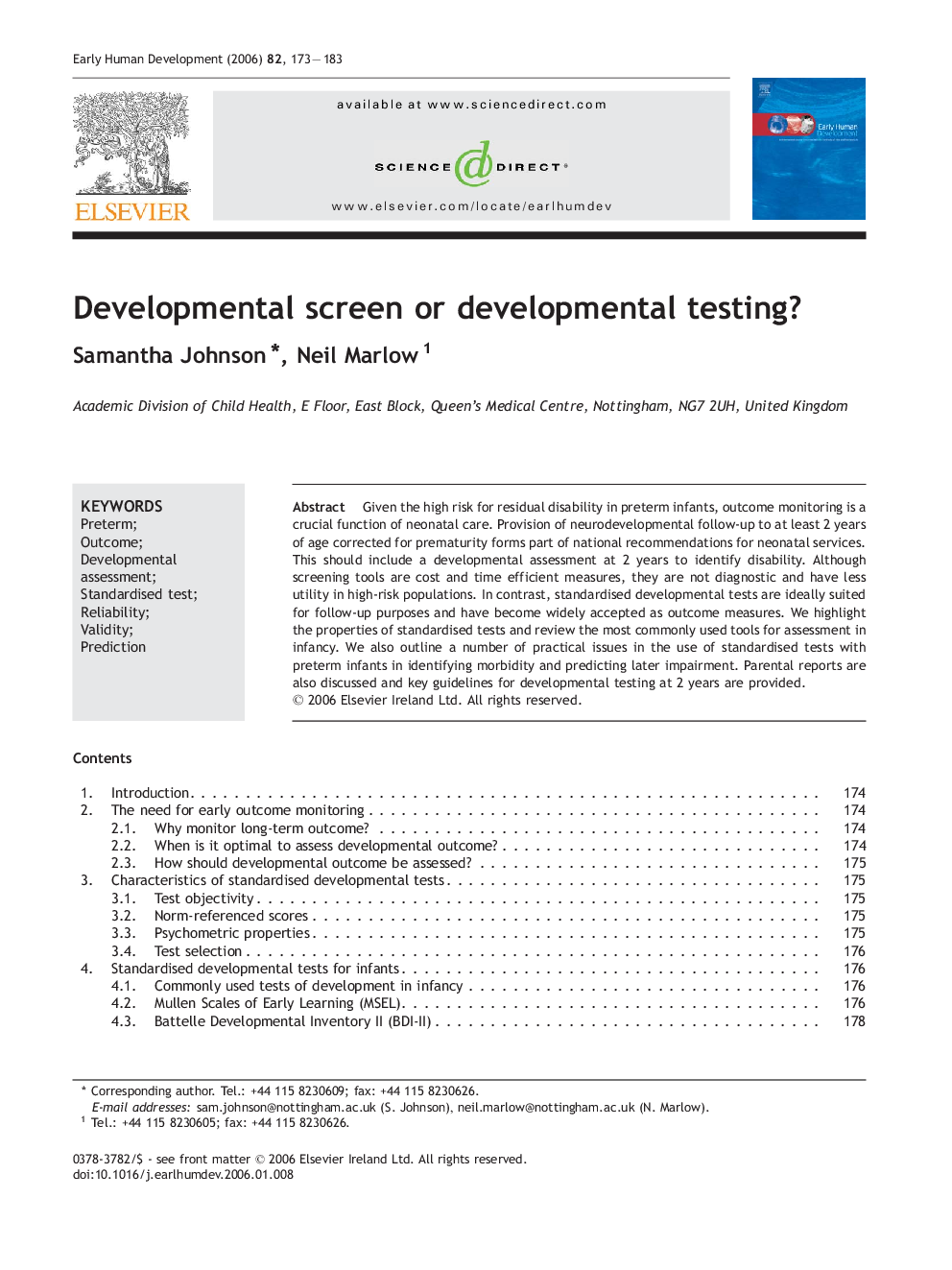| Article ID | Journal | Published Year | Pages | File Type |
|---|---|---|---|---|
| 3918416 | Early Human Development | 2006 | 11 Pages |
Given the high risk for residual disability in preterm infants, outcome monitoring is a crucial function of neonatal care. Provision of neurodevelopmental follow-up to at least 2 years of age corrected for prematurity forms part of national recommendations for neonatal services. This should include a developmental assessment at 2 years to identify disability. Although screening tools are cost and time efficient measures, they are not diagnostic and have less utility in high-risk populations. In contrast, standardised developmental tests are ideally suited for follow-up purposes and have become widely accepted as outcome measures. We highlight the properties of standardised tests and review the most commonly used tools for assessment in infancy. We also outline a number of practical issues in the use of standardised tests with preterm infants in identifying morbidity and predicting later impairment. Parental reports are also discussed and key guidelines for developmental testing at 2 years are provided.
